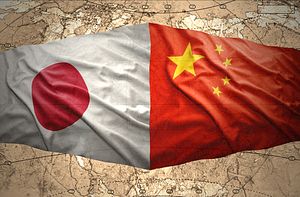When treating the ill or injured, doctors are incapable of diagnosing patients unless they know the source causing the condition. Similarly, resolving an international conflict of any magnitude requires the identification of source of the tension. The BBC’s recent documentary Missing Histories: China – Japan is a high-quality piece of journalism with the goal of discovering the sources of the conflict between the two countries. Throughout the investigative report, Japanese journalist Mariko Oi and Chinese journalist Haining Liu together visit schools in their respective home countries to observe the approach both countries take in teaching their shared history, focusing on the treatment of the wartime period (1931-1945, including Japan’s invasion of China to the end of World War II).
From the interviews conducted by Oi and Liu, they discovered a sizeable gap exists between both countries in their dedication and detail as it relates to the history of the wartime period. For instance in Japan, textbooks only use a small number of pages to chronicle the war. The description of the atrocities which took place is very bland. Japanese officials and textbooks editors who received Oi and Liu’s interviews even questioned whether the Japanese military actions in China and Korea could be called ‘invasions” and whether there was a “massacre” in Nanjing. Finding the facts of history education in Japan was a big shock to Haining Liu, the Oxford-educated Chinese journalist. She was shaking and crying after an interview. In the Chinese classroom, however, the curriculum is heavily loaded with the contents of China’s traumatic national experience from the Opium Wars through to the end of the Sino-Japanese War in 1945. State-run national patriotic education is conducted from kindergarten through college. Naturally, the younger generations in China and Japan are getting two completely different understandings of this period in history.
Often in conflicts among two nations, citizenries accuse the top leadership of not doing enough to avoid the tensions that exist. However, conflict often reflects the continuities of social discourses. The phenomenon of violent conflict cannot simply be understood through analyses of leadership; it is necessary to uncover the continuities in social discourses which enable conflict and give it legitimacy. Many individuals, from scholars to journalists, and even the general public, played some role either through intentional or unintentional action to contribute to the conflict, rather than peace. For example, the media in Japan and China have played a large role in shaping the perceptions of citizens by demonizing the other side. In order to stop the conflict, there should be bi-national joint efforts by people at different levels, not just the top leaders.
The BBC’s Missing Histories: Japan – China documentary is therefore a timely action. Joint efforts by journalists are rare, though reports covering discrepancies in history are common in both countries. Through their joint interviews, the two young ladies have been able to help citizens of their respective nations become more cognizant of the other state. Compared to the reports coming out of Japan or China which are often biased, this type of joint effort can help people of both sides pay more attention and listen to the other side’s experience of their shared history, rather than only being exposed to one-sided reports.
To resolve the present conflict between China and Japan, more joint efforts are needed by individuals at all levels. Scholars from both nations need to have dialogues to help further discover the source of the conflict. Business leaders in both countries should voice their collective opinions to top leadership and citizenry that tensions and conflicts are harmful and dangerous to the two highly interdependent economies.
Without knowing the root cause, relationship issues cannot be repaired. China and Japan should be able to bring these suppressed differences of perception to the surface. Both should at least know what the other country’s perspective is and the reasoning behind the perspective. Even though it is quite difficult for both to agree, they should recognize the main differences and reasons behind the other’s claims. Without addressing this deep source and tough obstacle, it would be impossible to prevent conflict and establish a sustainable relationship between the two neighbors.
Zheng Wang is an Associate Professor of Seton Hall University and a Global Fellow at the Woodrow Wilson Center. He is the author of Never Forget National Humiliation: Historical Memory in Chinese Politics and Foreign Relations, which is the winner of the International Studies Association’s Yale H. Ferguson Award.
































